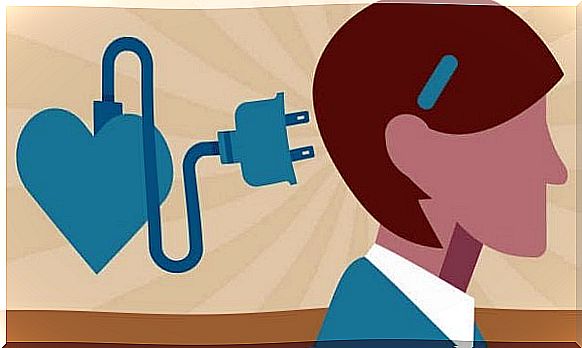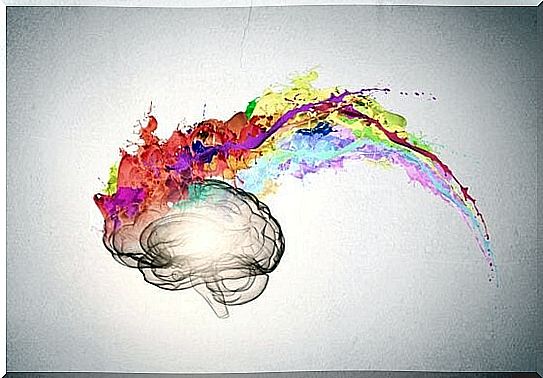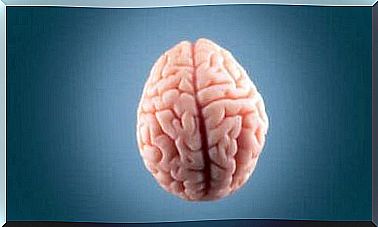Daniel Goleman On Emotional Intelligence
Brilliant brains and high IQ are pretty useless if we don’t have empathy. They are useless if we don’t know how to read our own (and other people’s) emotions. If we are strangers to our own hearts and we don’t have a social consciousness that allows us to connect, manage our fear and be assertive, then our IQ will not be enough. Therefore, learn more about emotional intelligence, the true key to happiness.
The debate about what intelligence is or isn’t is still going on. For example, empirical evidence confirms the existence of Spearman’s ‘g’ factor. This factor is considered a foundation and an indispensable foundation that determines all forms of intelligent behavior.
Robert J. Sternberg’s theory of threefold division and of course Howard Gardner’s popular focus on multiple intelligences also try to explain what intelligence is.
So where is Daniel Coleman’s so-called “emotional intelligence”? Well, you might be interested in the fact that the essence of this idea has been present throughout the history of psychology.
Emotional intelligence over the years
Professor Goleman did not formulate this concept himself. He only popularized it with his 1995 book, Emotional Intelligence . More than five million copies of this book have already been sold.
Edward L. Thorndike, for example, defined what he called “social intelligence” as early as 1920. This is the basic ability to understand and motivate other people.
In the 1940s, David Wechsler made it clear that no intelligence test can be valid if the emotional aspects are not taken into account.
Later, Howard Gardner himself laid the first foundation when he described the seventh form of intelligence as “interpersonal intelligence.” This intelligence is without a doubt very similar to emotional intelligence.
But the term “emotional intelligence” first appeared in 1985, in Wayne Payne’s doctoral thesis. The title of this paper was A study of emotions: the development of emotional intelligence.
Just ten years later, Daniel Goleman, an American psychologist and journalist, initiated a process that is still evolving. It helps us understand the power of emotions on who we are, on what we do and how we form relationships.
Daniele Goleman on Emotional Intelligence
Daniel Goleman began his career as a journalist at The New York Times. Today he is the guru of Emotional Intelligence. He is now in his seventies. But his serene smile and penetrating gaze still powerfully hold our attention.
It’s like he’s always been able to see beyond the rest of us. He is a man who does not miss a single detail. Moreover, he discovers connections where we only see coincidences.
Goleman always says he inherited his passion for psychology from his mother. She worked as a social worker and specialized in psychiatry. She also collected books on neuroscience, on the human mind and on the behavioral sciences. These books shaped his childhood and his daily life.
He read those texts with immeasurable fascination. For a while they were little more than indecipherable reading material for Goleman. But they later became the source of his motivation and the path to who he is today: the greatest promoter of social intelligence.
What exactly is emotional intelligence?
It is a view, a view of intelligence that looks beyond cognitive factors (such as memory and problem solving). We are talking first of all about the ability to address others and ourselves in an efficient way. How do we get in touch with our emotions? How do we direct our feelings? How do we motivate ourselves, curb our impulses, overcome frustrations…?
Goleman explains that his approach to emotional intelligence is based on four basic dimensions:
- The first is self-awareness. This refers to the ability to understand what we feel, to be connected to our values, to our essence.
- The second aspect is self-motivation and the ability to focus on our goals, recover from relapse and cope with stress.
- Social awareness and empathy are elements of the third dimension.
- The fourth link is without a doubt the philosopher’s stone of Emotional Intelligence: it is about the ability to form relationships, to communicate, to reach agreements, to connect with others in a positive and respectful way.

In his book, Daniel Goleman reminds us that we need to become proficient in these four areas. If we don’t do this, for example, you will be dealing with a person who may have been partially trained in emotional intelligence but who has only reached the level of self-awareness and is unable to empathize with others. That is why we have to see those four dimensions as a whole.
Emotional intelligence can be learned and improved
In his books Emotional Intelligence (1195) and Social Intelligence (2006), the author explains that we find part of this ability, of this talent, in our own epigenetics. This means that it can be activated and deactivated. Everything depends on the emotional and social conditions in which we grow up.
But the real magic is in the next aspect. Emotional intelligence also has to do with the plasticity of our brains. This is where incentives, repeated practice, and systematic learning create changes and make connections. That way, we can become much more proficient in each of the four dimensions we’ve discussed.

Daniel Goleman also points out the importance of raising our children according to these insights. As for the adult world, we know that there is no shortage of education, books and other types of training.
Specific emotional intelligence data
It is a matter of willpower and perseverance. So apply the insights that Professor Goleman writes about in this way.
- We have to look for the emotion behind each of our actions.
- It’s important that we expand our emotional language (saying ‘I’m sad’ is sometimes not enough. We need to be more specific in our words. ‘I’m sad because I’m disappointed, and at the same time I’m feeling a bit angry and confused’) .
- Try to control what you think so that you can control your behavior as well.
- Look for the reason behind the behavior of others. Be able to understand the views and feelings of others.
- Express your emotions assertively.
- Improve your social skills.
- Learn how to motivate yourself. Fight for the things that can bring you closer to true happiness.
We close this article with this comment. Intelligence is more than just IQ. Success depends on all factors. We are talking about personal success here as we communicate and connect better with others, living in balance and harmony while feeling capable, free and happy and experiencing personal satisfaction. It’s an adventure!
Bibliography:
-Daniel Goleman (1996) Inteligencia Emocional . Madrid: Kairos
-Daniel Goleman (2012) El Cerebro y la Inteligencia Emocional. Barcelona: Ediciones









